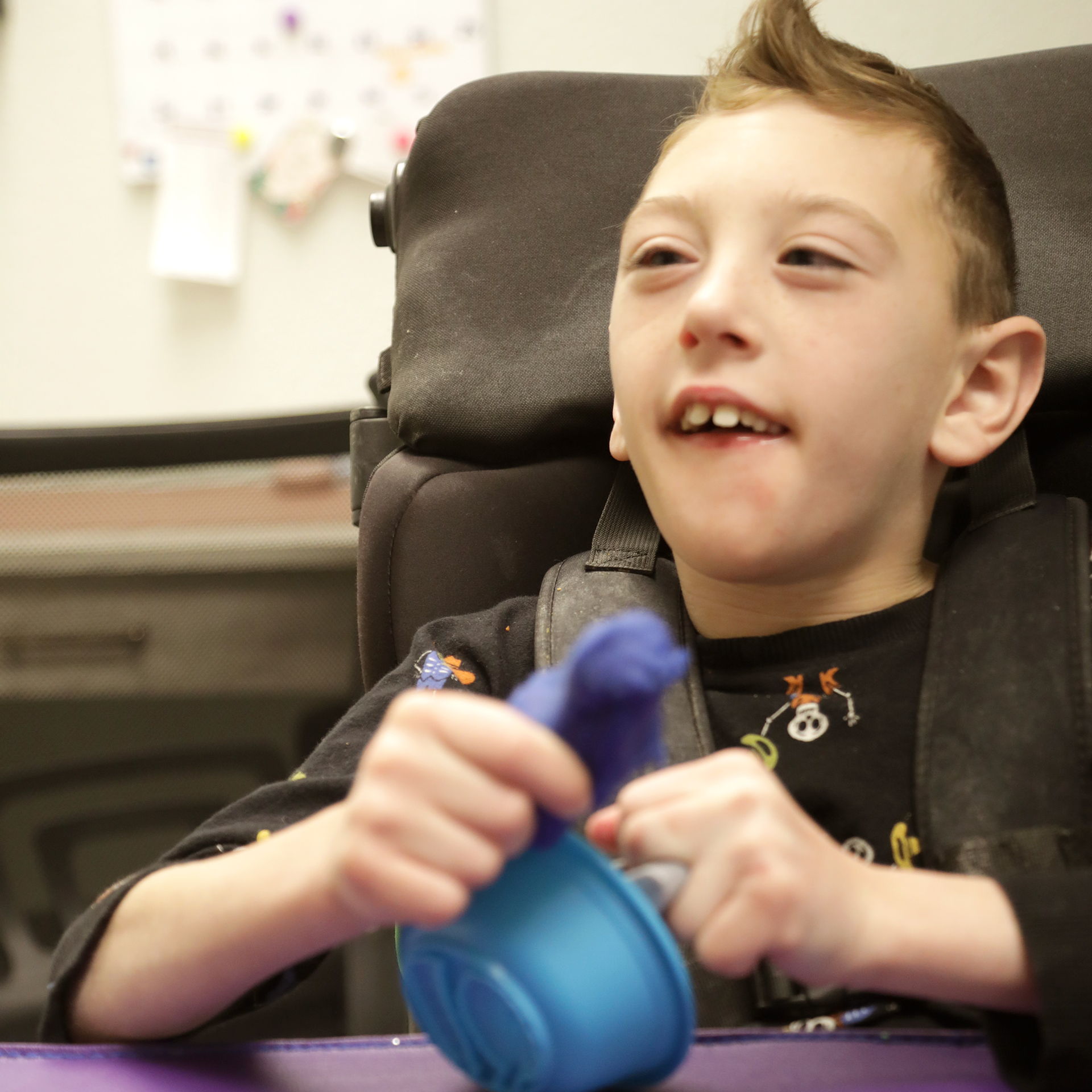How Much Does a Child With Autism Get From SSI?


Introduction to SSI for Autism
Navigating the financial complexities associated with raising a child with autism can be daunting for families. The Supplemental Security Income (SSI) program serves as a crucial support system aimed at alleviating the financial burden by providing monthly payments to families with limited income and resources. For children diagnosed with autism, SSI offers essential aid to cover various living expenses, including medical and therapeutic needs. This article delves into the specifics of SSI benefits for children with autism, eligibility criteria, application processes, and the potential financial relief it can provide.
Understanding SSI Benefits for Autistic Children

What is Supplemental Security Income (SSI) for children with autism?
Supplemental Security Income (SSI) for children with autism provides crucial financial assistance to families with limited income and resources. This program is designed to help cover daily living expenses, alleviating some financial pressures that families face when caring for a child with autism.
To qualify for SSI, a child must have a medically determinable impairment, such as Autism Spectrum Disorder (ASD), that results in significant limitations in daily activities and is expected to last at least 12 months. Families must also demonstrate financial need, meaning their total countable assets must not exceed $2,000. The family’s income must fall below specified limits, which vary depending on household size.
In 2025, the maximum monthly payment for an individual is projected to be up to $967, although this amount can vary based on factors like parental income and living situations. Recipients of SSI must regularly report changes in their financial circumstances to preserve their benefits, ensuring ongoing eligibility. Moreover, families receiving SSI may qualify for other assistance programs, such as Medicaid and the Supplemental Nutrition Assistance Program (SNAP), which further supports their economic stability.
Eligibility Criteria for SSI Benefits

What are the eligibility criteria for a child with autism to receive SSI?
To qualify for Supplemental Security Income (SSI), a child with autism must be under 18 and diagnosed with a medically determinable condition resulting in marked and severe functional limitations. These limitations are expected to persist for at least 12 months. The Social Security Administration (SSA) specifically outlines the need for detailed documentation, including medical records, educational reports, and assessments of therapy outcomes.
Medical documentation requirements
The application process for SSI requires comprehensive medical documentation. This includes:
- Medical records that confirm the autism diagnosis.
- Reports from healthcare providers detailing the child’s impairments in communication and social interactions.
- Educational assessments demonstrating how autism affects the child's daily activities and learning abilities.
Providing this documentation helps to substantiate the claim and determine eligibility.
Financial thresholds
In addition to medical criteria, financial eligibility is crucial for SSI benefits. The income and resources of the child's family must remain below certain limits. For example, a single-parent household generally cannot exceed an income of around $38,000 annually to qualify. In terms of resources, the child must have $2,000 or less in countable assets. If approved, families can expect monthly benefits, with averages around $791, designed to assist with various living expenses such as food and housing. Families have the right to appeal if their application is denied, allowing for a reassessment of their eligibility.
Applying for SSI Benefits
How can parents apply for SSI for a child with autism?
Parents can apply for Supplemental Security Income (SSI) for their child with autism by contacting the Social Security Administration (SSA). This typically starts with scheduling an appointment to discuss eligibility and complete the required application forms.
To qualify, a child must meet specific criteria set by the SSA, demonstrating severe functional limitations expected to last at least 12 months. The eligibility assessment includes a detailed look at the child's medical condition, impacting their daily activities and the degree of their autism symptoms.
Required documentation
The application process requires thorough documentation, which includes:
- Medical Records: Comprehensive medical documentation proving the child's autism diagnosis and its effect on their functionality.
- Educational Reports: Information from schools that outlines the child's abilities and challenges in communication and social interaction.
- Financial Information: Detailed data about the family’s income, including tax returns and pay stubs, as the SSI program is needs-based and determines eligibility according to the family's financial situation.
Overall, the SSI application can take several months to process, at which point the SSA will notify families of their decision. If an initial application is denied, parents can appeal the decision. Eligible children receive monthly payments, which vary based on household income, with the federal benefit rate set at $943 per month as of January 2024.
Common Reasons for SSI Denial

Is it possible for a child with autism to be denied SSI benefits?
Yes, a child with autism can be denied Supplemental Security Income (SSI) benefits. This typically occurs if they fail to meet the Social Security Administration’s (SSA) stringent medical criteria for disability. Specifically, the disability must result in marked and severe functional limitations that significantly affect daily activities.
Another reason for denial is related to the family’s financial situation. SSI is a needs-based program, meaning that families with higher incomes may not qualify. For example, if family income exceeds certain limits—for instance, over $38,000 for a single parent household—this could lead to a denial.
Understanding the Appeal Process
If a family is denied SSI benefits, they have the option to appeal the decision. This appeal must be filed within 60 days of receiving the denial notice. During the appeal process, it’s critical to provide additional documentation that may support the claim, such as updated medical evaluations and educational assessments.
By thoroughly reviewing and addressing the reasons for the initial denial, families can bolster their case for receiving approximately $791 per month if they are eventually approved. It's important to seek assistance from advocacy groups or professionals familiar with the SSI application process to enhance the chances of a favorable outcome.
Financial Benefits of SSI for Children with Autism

SSI Monthly Payment Amounts
In 2024, the maximum monthly payment through Supplemental Security Income (SSI) for an individual is set at $943, with couples receiving up to $1,414. For children with autism specifically, qualified individuals may receive approximately $794 per month, subject to various conditions.
Factors Affecting SSI Amounts
However, the actual amount received can significantly fluctuate based on several factors:
- Family Income: SSI payments are needs-based, meaning that the income and resources of the child’s parents are taken into account. If the family’s income exceeds specific limits, the child’s SSI benefits may be reduced under a system called 'deeming'. For instance, a parent earning $1,950 monthly could result in a reduced benefit of around $553 for the child.
- Living Arrangements: The child's living situation also plays a crucial role. For example, if a child is living with relatives or receives free food or shelter, the SSA may adjust the SSI benefits accordingly.
How Much Money Do Parents of a Child with Autism Receive Through SSI?
Parents of a child with autism may receive SSI benefits, which strive to alleviate the financial pressure associated with raising a child with special needs. As of 2024, the maximum monthly SSI payment is $943 for an individual. However, the actual benefit may vary due to family income and resources, highlighting the interconnectedness of financial need and disability status in determining eligibility. This assistance is vital as many families incur substantial treatment costs, often exceeding 20% of their income, showcasing how SSI can help ease these financial burdens.
Impact of Family Income on SSI Benefits

How Does the Deeming Process Work?
The deeming process is a crucial aspect of Supplemental Security Income (SSI) eligibility for children, especially those diagnosed with autism. This process evaluates the income of the child's parents to determine how it impacts the child's ability to qualify for benefits. Essentially, if a child's household income exceeds certain thresholds, a portion of the parent's income is considered as the child's income. This calculation can significantly reduce the amount of SSI benefits a child receives.
What is the Impact of Parental Income?
The amount of SSI benefits for children with autism varies based on family income and resources. Families must maintain their total income below specific limits for the child to qualify. For example, a single-parent household must earn less than approximately $38,000 annually, while a two-parent household may have a higher allowable income of nearly $60,000. If parental income exceeds these limits, it can substantially reduce potential monthly SSI payments, potentially keeping some families from accessing essential financial support.
SSI and Additional Support Programs
Link between SSI and Medicaid
Children receiving Supplemental Security Income (SSI) benefits often find themselves automatically qualifying for Medicaid. This healthcare coverage is critical, as it helps families manage various medical expenses associated with autism treatment, including necessary therapies, medications, and routine health check-ups. However, it’s important to note that Medicaid eligibility rules can vary by state, so families should verify the specific requirements applicable to their location.
Additional benefits of SSI
Beyond direct financial assistance, SSI provides families with resources to cover costs relating to therapy, education, and essential devices needed for communication. The support can be especially vital for families navigating daily challenges associated with autism. Families often rely on SSI to alleviate financial stress, allowing them to focus on providing the necessary care and support for their children.
Considerations for SSI Post-18
Changes in eligibility after turning 18
When a child with autism turns 18, their eligibility for Supplemental Security Income (SSI) undergoes a significant change. They are assessed based solely on their income and resources, rather than their parents’. This reassessment can sometimes simplify the process for young adults, allowing them to qualify for benefits more independently.
Individual assessment post adulthood
The Social Security Administration (SSA) requires that individuals meet the adult criteria for disability, which means demonstrating marked and severe limitations that affect daily living. This involves proving ongoing challenges in communication, social interaction, or behavior as specified in their medical documentation. Understanding these criteria is essential for young adults transitioning into adulthood and the SSI system.
Conclusion: SSI as a Lifeline for Families
Supplemental Security Income (SSI) packages represent a critical lifeline for families supporting children with autism, providing necessary financial resources to manage daily living expenses and aid in covering medical and therapeutic costs. Understanding the intricate eligibility requirements, application procedures, and potential benefits is essential for families to effectively navigate the SSI program. As children with autism progress into adulthood, the continuing evaluation of their needs and SSI eligibility underscores the ongoing support and stability the program affords, ensuring families can access broader financial assistance and health care benefits when needed.
References
- How Much Support Does a Child With Autism Get From SSI
- The Ins and Outs of Supplemental Security Income (SSI) for Children ...
- [PDF] Benefits For Children With Disabilities - SSA
- Supplemental Security Income (SSI) for Children With Autism
- SSI and Autism: How Much Does a Child with Autism Get?
- How Much Does a Child With Autism Get From SSI?
- Autism & Disability Benefits | SSI | Lighthouse Autism Center
- Benefits for Autistic Children - ABA Therapy for Autism
Recent articles

Compassionate Pediatric Therapy in Butte, Montana
A welcoming place where every child’s potential is celebrated

How Pediatric Therapy Helps Kids Thrive across Montana and Wyoming
A supportive guide for families exploring therapy options in Billings, Butte, Missoula or Sheridan.

How to Choose the Right Pediatric Therapy Clinic in Billings, Montana
A Parent‑Friendly Guide To Finding The Best Support For Your Child

Expressive Speech Delay 2-Year-Old
Understanding and Addressing Expressive Speech Delay in Toddlers

How Speech Recognition Works
Unlocking the Power of Speech Recognition in Therapy and Healthcare

Autism and Head Size
Understanding the Complex Relationship Between Autism and Head Size

